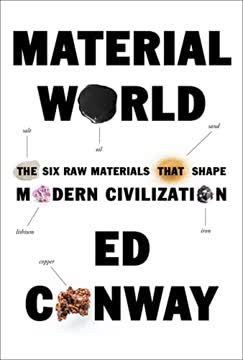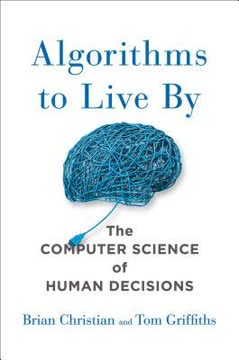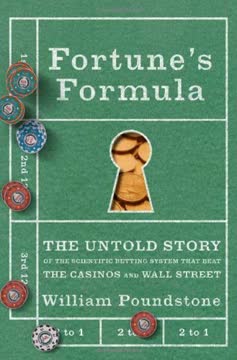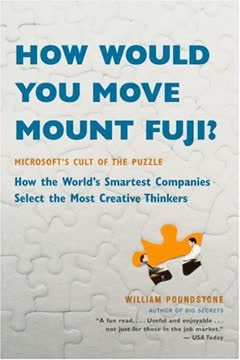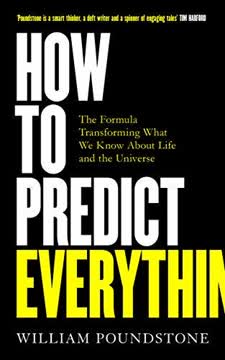النقاط الرئيسية
1. الجهل يشوّه خرائطنا الذهنية وقراراتنا
الأشخاص غير المطلعين لا يعرفون بالضرورة أقل. إنهم يعرفون أشياء مختلفة فقط.
تصورات مشوهة. يؤدي الجهل، وخاصة في الجغرافيا والأرقام الكبيرة والديموغرافيا، إلى تشويه الخرائط الذهنية للعالم. وهذا بدوره يؤثر على الخيارات والسلوكيات والآراء في المجالات الشخصية والعامة. على سبيل المثال، يمكن أن يؤدي نقص المعرفة الجغرافية إلى دعم التدخلات العسكرية في مناطق لا يستطيع الناس حتى تحديدها على الخريطة.
أمثلة على المعرفة المشوهة:
- الخلط بين أفريقيا كمكان واحد متجانس
- عدم القدرة على تحديد الدول التي تظهر في الأخبار، مثل أوكرانيا أو أفغانستان
- سوء فهم حجم الدين الوطني أو العجز
- المبالغة في تقدير حجم الأقليات
عواقب الجهل. يمكن أن تكون لهذه التصورات الخاطئة عواقب كبيرة، تؤثر على الآراء السياسية، ودعم السياسات مثل أسوار الحدود، وحتى القرارات الشخصية المتعلقة بالصحة والسلامة.
2. المعرفة ترتبط بالنجاح المالي
القدرة على الإجابة على ما يسمى بأسئلة المعلومات العامة ترتبط بزيادة الدخل ومؤشرات أخرى لحياة ناجحة.
علاوة المعرفة. ترتبط المعرفة الواقعية، حتى المعلومات التي تبدو تافهة، بزيادة الدخل ومؤشرات النجاح الأخرى. تستمر هذه "العلاوة المعرفية" حتى عند استبعاد التعليم الرسمي والعمر.
أمثلة على المعرفة التي تتنبأ بالدخل:
- معرفة عاصمة البرازيل
- فهم المفاهيم الأساسية في العلوم
- القدرة على تسمية المسؤولين المنتخبين
- معرفة معلومات رياضية
تفسيرات محتملة. قد تكون هذه العلاقة نتيجة لعدة عوامل، بما في ذلك مهارات اتخاذ القرار الأفضل، وتحسين قدرات التواصل، وزيادة احتمالية الزواج من شركاء ذوي تعليم جيد وأمان مالي.
3. تأثير دانينغ-كروجر يزدهر في ثقافة مقاومة الحقائق
يتطلب تأثير دانينغ-كروجر حدًا أدنى من المعرفة والخبرة في المجال الذي تجهله (وأنت جاهل بجهلك).
جهل الجهل. يصف تأثير دانينغ-كروجر الظاهرة التي يكون فيها الأشخاص الأقل معرفة ومهارة هم الأقل قدرة على تقدير نقصهم. يمكن أن يؤدي ذلك إلى تقييمات ذاتية مبالغ فيها وثقة مفرطة.
أمثلة على تأثير دانينغ-كروجر:
- السائقون السيئون يعتقدون أنهم سائقون جيدون
- مالكو الأسلحة الذين لديهم معرفة محدودة بسلامة الأسلحة يبالغون في تقدير معرفتهم
- الأشخاص الذين لديهم مهارات نحوية ضعيفة واثقون في قدرتهم على تقييم القواعد
أمريكا المعاصرة. يتفاقم هذا التأثير في أمريكا المعاصرة، حيث يمكن أن تؤدي الثقافة التي لا تهتم بالحقائق إلى نقص الوعي بجهل الفرد.
4. استهلاك وسائل الإعلام يشكل المعرفة والمعلومات المضللة
الخطر الكبير ليس أن الإنترنت يجعلنا أقل اطلاعًا أو حتى مضللين. بل إنه قد يجعلنا غير واعين بما لا نعرفه.
تأثير وسائل الإعلام. تلعب وسائل الإعلام دورًا كبيرًا في تشكيل ما نعرفه وما نعتقد أننا نعرفه. يمكن أن تسهم التقارير الانتقائية، والإثارة، وانتشار المعلومات المضللة في تشويه التصورات عن الواقع.
أمثلة على المعلومات المضللة المدفوعة بوسائل الإعلام:
- الاعتقاد بأن معدلات الجريمة في ارتفاع بينما هي في الواقع في انخفاض
- المبالغة في تقدير حجم الأقليات
- سوء فهم أسباب تغير المناخ
- الإيمان بنظريات المؤامرة
أهمية التفكير النقدي. من الضروري أن نكون واعين لإمكانية تضليل وسائل الإعلام وأن نطور مهارات التفكير النقدي لتقييم المعلومات وتمييز الحقائق عن الخيال.
5. الجهل العقلاني وقيمة المعرفة
رد الفعل التقليدي على مثل هذه التقارير هو مزيج من الصدمة والمرح. إنه لأمر فظيع كم يعرف الشباب/المواطنون العاديون قليلاً—أليس كذلك؟ من الجدير أن نسأل كيف نعرف أنه أمر فظيع وما إذا كان فظيعًا على الإطلاق.
الجهل العقلاني. جادل الاقتصادي أنتوني داونز بأن الجهل يمكن أن يكون عقلانيًا عندما يتجاوز الجهد المطلوب للحصول على المعرفة الفائدة من امتلاكها. ومع ذلك، يمكن أن يؤدي ذلك إلى مجتمع يكون فيه الناس غير مدركين لجهلهم ويتخذون قرارات سيئة نتيجة لذلك.
قيمة المعرفة. على الرغم من سهولة الوصول إلى المعلومات عبر الإنترنت، لا يزال هناك قيمة في وجود قاعدة من المعرفة الواقعية. توفر هذه المعرفة سياقًا، وتحسن التواصل، وتمكن من اتخاذ قرارات أفضل.
الأشخاص غير المطلعين. الأشخاص غير المطلعين لا يعرفون بالضرورة أقل، إنهم يعرفون أشياء مختلفة فقط. لاعب ألعاب يقضي كل وقته الحر في لعب ألعاب الفيديو سيكون لديه فهم موسوعي لتلك الألعاب. إنه غير مطلع فقط بمعايير تعسفية لما هو مهم.
6. تأثير جوجل: تفويض الذاكرة وعواقبه
لذا، يتم نسيان الحقائق بشكل متكرر عندما يعتقد الناس أن الحقائق ستؤرشف. وقد حصلت هذه الظاهرة على اسم—تأثير جوجل—الذي يصف النسيان التلقائي للمعلومات التي يمكن العثور عليها عبر الإنترنت.
تأثير جوجل. يصف "تأثير جوجل" الميل إلى نسيان المعلومات التي يمكن العثور عليها بسهولة عبر الإنترنت. وذلك لأن أدمغتنا تعطي الأولوية لتذكر مكان العثور على المعلومات بدلاً من المعلومات نفسها.
عواقب تأثير جوجل:
- انخفاض الاحتفاظ بالحقائق
- زيادة الاعتماد على ذاكرة المصدر
- إمكانية حدوث آثار شبيهة بالنسيان نتيجة الوصول المستمر إلى المعلومات
الذاكرة الموزعة. السحابة هي صديق يعرف كل شيء. إنها متاحة دائمًا، وتقدم الإجابة في ثوانٍ، ولا تنزعج من الأسئلة الغبية. ليس من المستغرب أننا نعتمد عليها إلى حد السخافة.
7. وهم المعرفة وتآكل الخبرة
نسخ الإجابات من جوجل أو ويكيبيديا جعل الناس يشعرون "أنا ذكي" (واحدة من العبارات التي يمكن الموافقة أو الاختلاف معها).
وهم المعرفة. يمكن أن يؤدي سهولة الوصول إلى المعلومات عبر الإنترنت إلى خلق وهم المعرفة، مما يجعل الناس يبالغون في تقدير قدراتهم وخبراتهم. يمكن أن يكون لذلك عواقب سلبية في مجالات مثل الانتحال واتخاذ القرارات.
تآكل الخبرة. قد يؤدي الإنترنت أيضًا إلى تآكل قيمة الخبرة، حيث يعتمد الناس بشكل متزايد على المصادر عبر الإنترنت بدلاً من استشارة الخبراء. يمكن أن يؤدي ذلك إلى تراجع جودة المعلومات والنصائح.
السحابة سهلة الوصول الآن. السحابة سهلة الوصول الآن، وعملية الوصول إليها يمكن أن تصبح أكثر سلاسة في المستقبل القريب. يبدو أن مشهدًا في فيلم "أني هول" (1977) قد أصبح قديمًا بالفعل—أم أنه نبوءة؟
8. أهمية الثقافة العامة في عالم معقد
من السهل قبول الحجة الأساسية لهيرش؛ لكن من غير الواضح إلى أي مدى يجب أن نأخذها.
الثقافة العامة. جادل إ.د. هيرش جونيور بأن وجود مجموعة مشتركة من المعرفة أمر ضروري للتواصل الفعال والفهم الثقافي. تشمل هذه "الثقافة العامة" معرفة التاريخ والأدب والفن وغيرها من جوانب الثقافة.
تآكل الثقافة العامة. هناك أدلة على أن الثقافة العامة في تراجع، خاصة بين الأجيال الشابة. يمكن أن يؤدي ذلك إلى صعوبات في فهم الإشارات التاريخية، وتقدير الفن والأدب، والمشاركة في مناقشات مستنيرة.
قيمة الثقافة العامة. الثقافة العامة ليست مجرد معرفة الحقائق؛ بل هي أيضًا تطوير مهارات التفكير النقدي، وتقدير وجهات النظر المختلفة، والانخراط مع العالم بطريقة ذات مغزى.
9. استراتيجيات للتنقل في عالم يفتقر إلى الثقافة
التحدي الكبير في مجتمع حر هو اتخاذ قرارات جيدة عندما يكون الجميع تقريبًا مضللين.
تحدي المعلومات المضللة. في عالم حيث المعلومات المضللة منتشرة، من الضروري تطوير استراتيجيات للتنقل في مشهد المعلومات واتخاذ قرارات مستنيرة. يشمل ذلك:
- تطوير مهارات التفكير النقدي
- البحث عن مصادر متنوعة للمعلومات
- الوعي بالتحيزات الشخصية
- الانخراط في حوار محترم مع الآخرين
أهمية التعليم. يلعب التعليم دورًا حيويًا في تجهيز الأفراد بالمعرفة والمهارات التي يحتاجونها للتنقل في عالم معقد وسريع التغير. يشمل ذلك ليس فقط المعرفة الواقعية ولكن أيضًا التفكير النقدي، وحل المشكلات، ومهارات التواصل.
الحاجة إلى مواطنين مطلعين. تعتمد الديمقراطيات على حكمة الجماهير، لكن الجماهير تكون أقل حكمة عندما يشارك الكثيرون نفس الخرائط الذهنية المشوهة. من أجل اتخاذ قرارات مدروسة بشأن معظم القضايا السياسية، من الضروري أن يعرف الناخبون بعض الإحصائيات الديموغرافية ويفهموا الفرق بين مليون ومليار وتريليون.
آخر تحديث::
FAQ
What is Head in the Cloud: Why Knowing Things Still Matters When Facts Are So Easy to Look Up by William Poundstone about?
- Exploration of knowledge in the digital age: The book investigates why knowing facts still matters, even when information is easily accessible online, and examines the paradox of widespread ignorance despite the availability of facts.
- Three-part thematic structure: Poundstone organizes the book around the Dunning-Kruger effect, the knowledge premium (how knowledge correlates with success), and strategies for navigating a culturally illiterate world.
- Use of original surveys: The author uses extensive surveys to map public knowledge, revealing gaps and their consequences for individuals and society.
- Cultural literacy and misinformation: The book also addresses how misinformation spreads and the importance of understanding context and critical thinking in the digital era.
Why should I read Head in the Cloud by William Poundstone?
- Challenges the “Google it” mindset: Poundstone demonstrates that knowledge enriches lives and is linked to practical benefits like financial literacy, health, and informed decision-making.
- Insight into cognitive biases: The book explains the Dunning-Kruger effect and other biases, helping readers recognize and overcome their own blind spots.
- Strategies for information overload: Readers gain practical advice on curating knowledge and managing digital media consumption to stay well-informed.
- Relevance to modern life: The book is essential for anyone interested in how digital tools shape our thinking, memory, and participation in society.
What are the key takeaways from Head in the Cloud by William Poundstone?
- Knowing facts still matters: Internalized knowledge provides a mental map for critical thinking and helps avoid the trap of not knowing what you don’t know.
- Knowledge correlates with success: General factual knowledge predicts higher income, better decision-making, and more nuanced opinions.
- Cultural literacy is essential: Understanding shared references enables informed conversations and citizenship, while faked or superficial literacy is increasingly common.
- Critical thinking and skepticism: The book emphasizes the need for skepticism, context, and research skills to navigate misinformation and information overload.
What is the Dunning-Kruger effect as explained in Head in the Cloud by William Poundstone?
- Definition and origin: The Dunning-Kruger effect is a cognitive bias where people with low ability or knowledge in a domain overestimate their competence, while experts may underestimate theirs.
- Real-world examples: Poundstone cites studies showing that unskilled individuals are often unaware of their ignorance, leading to inflated self-assessments and poor decisions.
- Broader implications: This effect explains why people hold distorted mental maps of reality, affecting decisions in politics, education, and daily life.
- Learning and self-awareness: Gaining competence not only improves skills but also enhances self-awareness, helping people recognize their limitations and seek further knowledge.
How does William Poundstone define and discuss the “Google effect” in Head in the Cloud?
- Definition of the Google effect: The Google effect is the tendency to forget information that can be easily found online, as the brain prioritizes remembering where to find facts rather than the facts themselves.
- Experimental evidence: Studies show people remember trivia facts less well when they believe the information is stored and accessible on a computer.
- Implications for memory: This shift in memory strategy reflects adaptation to distributed memory but may reduce deep knowledge retention and critical thinking.
- Risks of meta-ignorance: Relying solely on digital lookups can lead to being unaware of one’s own ignorance, making it harder to identify knowledge gaps.
How does factual knowledge correlate with income and success according to Head in the Cloud by William Poundstone?
- Strong positive correlation: Surveys show that people who answer more general-knowledge questions correctly tend to have higher household incomes, even when controlling for education and age.
- Beyond formal education: Knowledge predicts income beyond formal education, suggesting that broad factual knowledge confers advantages in communication, problem-solving, and social perception.
- Specific knowledge areas: Financial literacy and even sports trivia correlate strongly with income, indicating practical and culturally pervasive knowledge can impact earnings.
- Complex causality: The relationship may be bidirectional or influenced by factors like family background, memory, curiosity, and ambition.
What does Head in the Cloud by William Poundstone reveal about public knowledge and cultural literacy?
- Widespread ignorance: Surveys reveal that many adults and even college students lack basic knowledge in geography, history, science, and literature.
- Generational and international gaps: Millennials, despite being highly educated, often score lower on general knowledge tests compared to international peers.
- Consequences for society: Distorted mental maps influence political opinions and policy preferences, potentially undermining democratic decision-making.
- Fragmented and superficial literacy: Public knowledge often consists of disconnected facts or oversimplified narratives, with many people faking cultural literacy through spoilers or secondhand information.
How does Head in the Cloud by William Poundstone address misinformation and fake news?
- Spread of fake news: The book highlights how spoof and fake news sites spread false stories that are widely shared and mistaken for truth, especially on social media.
- Dunning-Kruger in media literacy: People least able to detect fake news often believe they are good judges of truth, fueling the viral spread of misinformation.
- Need for skepticism: Poundstone stresses the importance of critical thinking, contextual knowledge, and research skills to discern truth in the digital age.
- Role of context: Understanding the context and source of information is essential for resisting misinformation and making informed decisions.
What does Head in the Cloud by William Poundstone say about Americans’ knowledge of science and religion?
- Mixed scientific understanding: While many Americans know basic scientific facts, large minorities fail on fundamental questions about evolution, the big bang, and atomic structure.
- Religious ignorance despite faith: Many Americans are deeply religious but lack detailed knowledge about their own or other religions, partly due to limited religious education in schools.
- No link to happiness: The book finds no correlation between religious knowledge and self-reported happiness, income, or relationship status.
- Value of scientific and religious literacy: Both are essential for cultural literacy and understanding political and global conflicts, though the book questions how much knowledge is truly necessary.
How does Head in the Cloud by William Poundstone describe the state of political knowledge and its impact on democracy?
- Low political knowledge: Many voters cannot name their elected officials beyond the president and vice president, and have poor understanding of government functions and civics.
- Impact on elections: Low-information voters are more likely to be swayed by name recognition, character appeals, or partisan messaging rather than policy knowledge.
- Risks for democracy: Increasing voter turnout without improving political knowledge risks turning elections into lotteries, where choices are made randomly or based on superficial factors.
- Need for informed engagement: The book suggests that improving political knowledge is crucial for healthy democratic decision-making.
What practical strategies does William Poundstone recommend in Head in the Cloud for managing information overload and maintaining cultural literacy?
- Balanced news diet: Consume a mix of news sources that are not overly customized, such as NPR, newspapers, and curated TV shows, to get a broad and reasoned perspective.
- Limit junk browsing: Set specific times for recreational browsing and avoid news aggregators or social media as default homepages to reduce distractions.
- Avoid echo chambers: Supplement preferred news sources with diverse viewpoints to avoid living in an information bubble.
- Retain foundational knowledge: Build a critical mass of facts to enable effective use of digital resources and critical evaluation of information.
What is the fox and hedgehog metaphor in Head in the Cloud by William Poundstone, and how does it relate to knowledge and decision-making?
- Fox vs. hedgehog explained: The fox knows many things and embraces complexity, while the hedgehog knows one big thing and applies it rigidly; Poundstone favors the fox’s broad, contextual knowledge.
- Nuanced opinions: People with broader general knowledge tend to have more nuanced opinions and are less likely to hold knee-jerk reactions on controversial issues.
- Importance of humility: Broad knowledge fosters humility by revealing how much one does not know, which is essential for wise citizenship and decision-making.
- Shared reference points: Contextual knowledge provides shared cultural references, enabling more informed and reasoned public discourse.
مراجعات
كتاب "الرأس في السحاب" يتلقى آراء متباينة، حيث يثني البعض على أفكاره المثيرة للتفكير حول أهمية المعرفة العامة في عصر الرقمية. يقدّر النقاد استكشاف باوندستون لتأثير دانينغ-كروجر والعلاقة بين المعرفة والنجاح. ومع ذلك، يجد الكثيرون أن الكتاب متكرر، يركز بشكل كبير على الولايات المتحدة، ويميل إلى التعالي في نبرته. يجادل بعض المراجعين بأن باوندستون يبسط القضايا المعقدة ويفشل في تقديم تحليل دقيق لاكتساب المعرفة. على الرغم من هذه الانتقادات، يتفق القراء عمومًا على أن الكتاب يثير أسئلة مهمة حول قيمة المعرفة في عصر الوصول السهل إلى المعلومات.
Similar Books
